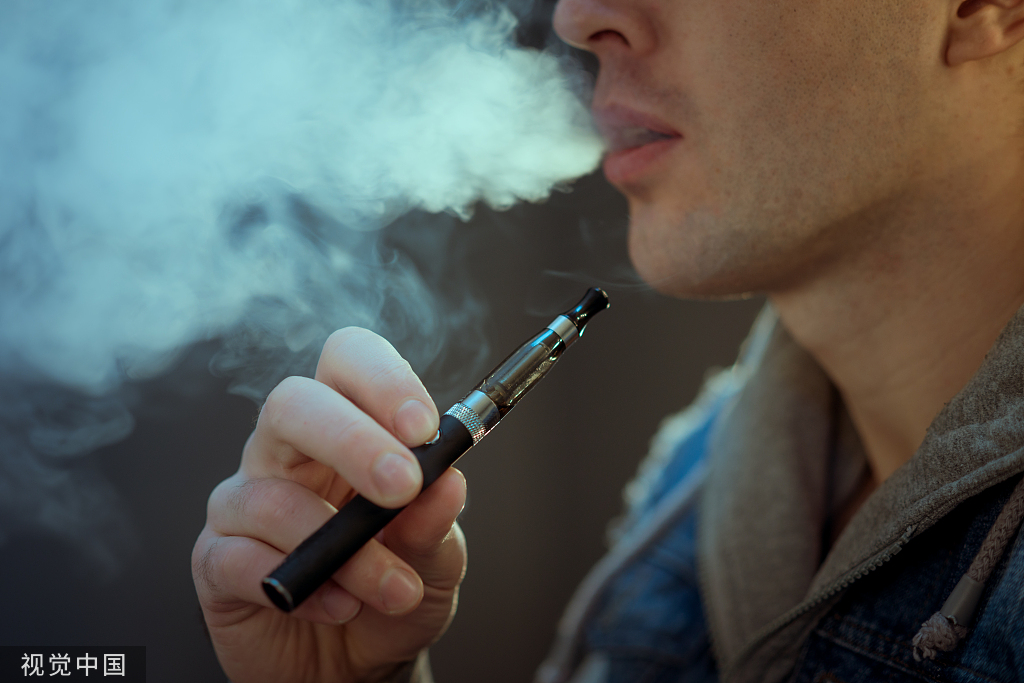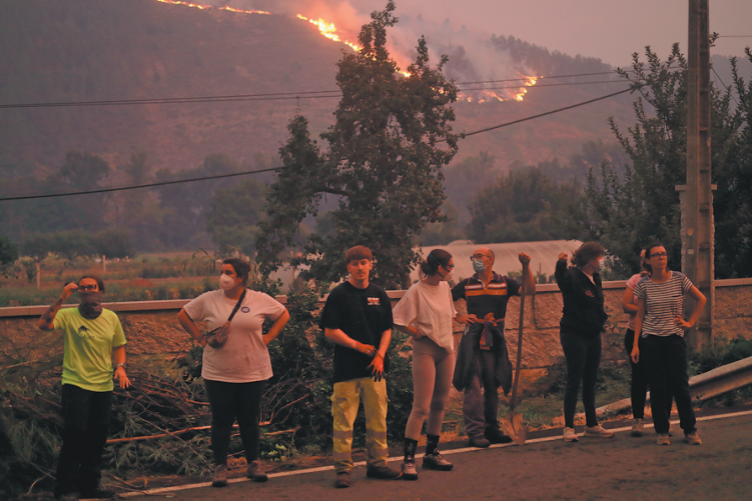Canadian afflicted by new type of vaping disease


A 17-year-old male in Canada developed what appears to be a new type of vaping-related lung damage and nearly died after using THC-infused and flavored e-cigarettes for five months, health officials said Thursday.
The disease has not been found among users of vaping products in the US. It is officially known as bronchiolitis obliterans and generally called "popcorn worker's lung", and is named for factory workers who inhaled diacetyl, a chemical approved for food flavoring and once used in buttery popcorn. The problem was first observed in 1985.
The chemical is no longer used by most major manufacturers of microwave popcorn. It's unclear if the chemical was present in the young man's vaping products, which have been thrown away, doctors told NBC News.
In the disease, the smallest airways in the lung — the bronchioles — become scarred and constricted, blocking the movement of air and are unable to expel carbon dioxide that can build up to toxic levels, the US Centers for Disease Control and Prevention (CDC) said.
"He was on life support, and we were concerned that he might not survive," Doctor Karen Bosma, a treating physician at the hospital in Ontario, Canada, and an associate scientist at Lawson Health Research Institute, told CBS News.
"We also did CT scans, and that gives us a deeper look at the lungs. That showed that he had a diffuse pattern. So if you picture the branches of a tree in the springtime when a tree is budding, that is what we are seeing on these images of the CT scan and that's the pattern that is in keeping with damage."
The young man's family said he inhaled deeply when vaping flavored nicotine packets and regularly added THC, the psychoactive ingredient in marijuana that gives users a "buzz" or "high". The family said he developed a cough he couldn't shake and had trouble breathing before being admitted to the hospital, NBC News reported.
The young man narrowly avoided the need for a double lung transplant, but appears to have sustained chronic lung damage, doctors said.
Doctors in Michigan recently performed a double lung transplant on a teenager who vaped. Officials didn't release the name of either patient.
Through Nov 13, the CDC reported 2,172 cases of lung injury associated with e-cigarettes and 43 deaths, including the latest reported Wednesday in New York state.
Researchers reported that 83 percent of the patients reported using THC-infused products and 35 percent reported exclusive use of such products.
Investigators discovered that THC products obtained illegally often contain vitamin E acetate used as a thickening agent, but caution more research is needed to establish a link with the lung injuries.
In Boston, the Massachusetts state Senate approved a bill early Thursday to impose a 75 percent tax on e-cigarettes, to impose a first-in-the nation ban on menthol-flavored cigarettes and to improve access to smoking-cessation programs.
"The legislation is a critical step to help end the worsening youth e-cigarette epidemic and stop tobacco companies from using appealing flavors to lure kids into a lifetime of addiction," Matthew Myers, president of the Campaign for Tobacco-Free Kids, an advocacy group in Washington, said in a statement.
"Action to positively impact youth vaping is achievable without banning menthol and mint tobacco — legal products that aren't associated with youth overuse and have no reason to be included in this legislation," said Jonathan Shaer, executive director of the New England Convenience Store and Energy Marketers Association.
































